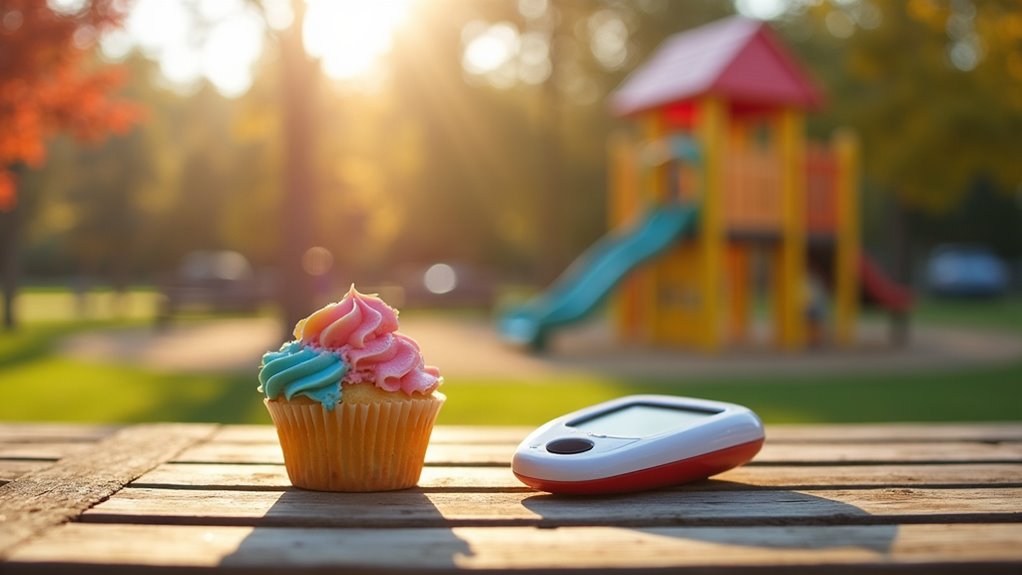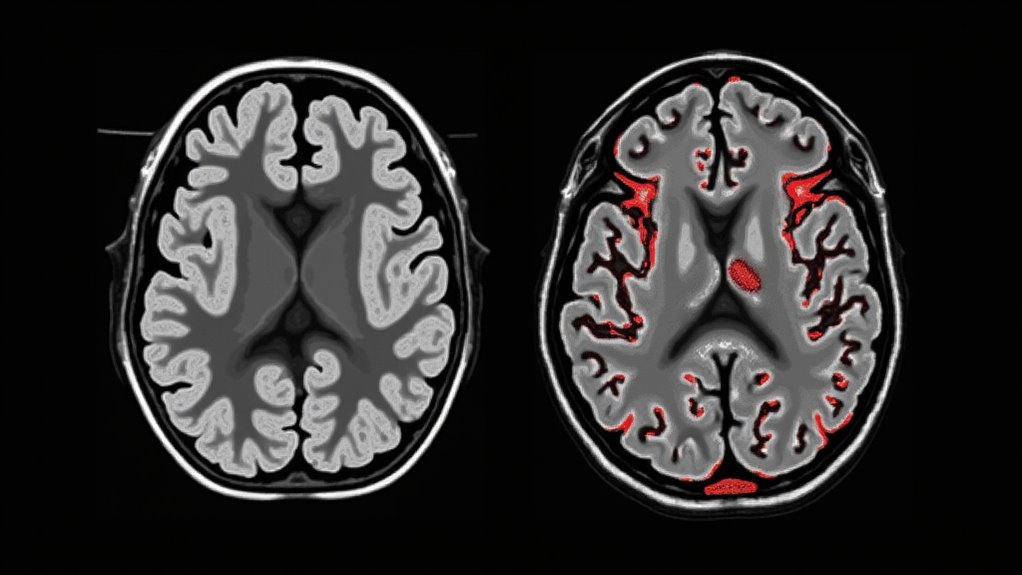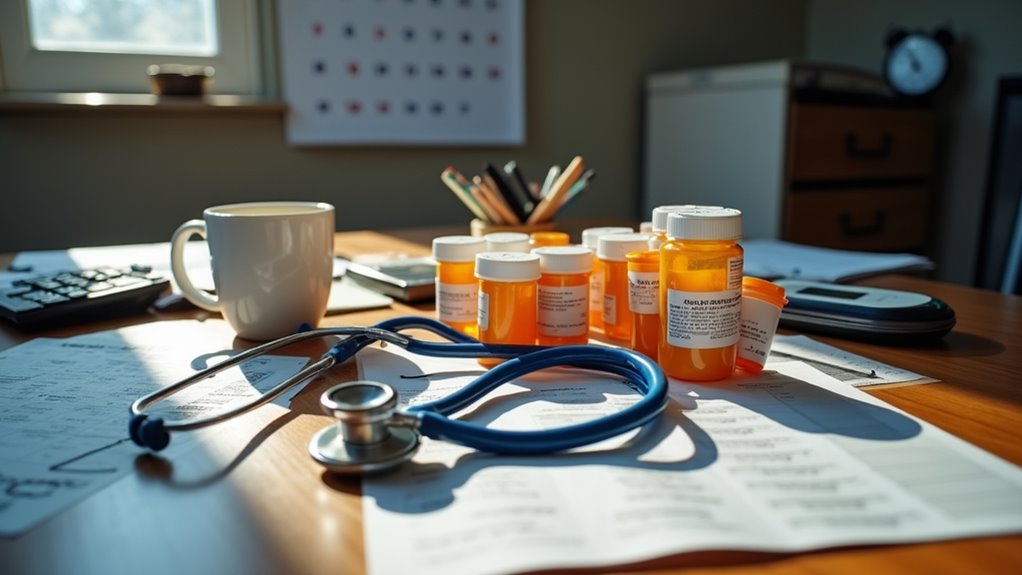While childhood should be about carefree play and discovery, more than 208,000 American kids and teens are juggling something far more serious: diabetes. That’s roughly 35 out of every 10,000 U.S. youths under 20. Not exactly small numbers. And they’re growing.
The landscape is changing—fast. Type 1 diabetes used to be the childhood version, with Type 2 reserved for adults who’d spent decades making poor choices. Not anymore. Type 2 is surging among kids aged 10-19, riding the wave of childhood obesity like it’s the latest TikTok trend. High blood pressure affects nearly three-quarters of diabetic patients, making early detection crucial.
Diagnosis isn’t always straightforward. Kids with Type 1 might suddenly start chugging water, peeing constantly, and developing breath that smells like a fruit basket gone wrong. Type 2 often sneaks in without fanfare, discovered during routine bloodwork. Surprise! Your child has a chronic disease.
The emotional toll? Enormous. These kids aren’t just managing blood sugar; they’re maneuvering social minefields with medical equipment in tow. Try being the only 12-year-old counting carbs at a birthday party. Parents become part-time pancreases, constantly calculating and worrying.
The disparities are stark. Non-Hispanic Black children are getting hit hardest with Type 2 diabetes. Asian and Hispanic youth aren’t far behind. Apparently, chronic disease doesn’t believe in equality either.
Looking ahead, the forecast is bleak. By 2060, diabetes in young people will skyrocket—Type 1 cases up by 65% and Type 2 potentially increasing by a staggering 700%. That’s not a typo.
This Saturday’s “Kids Without Limits” health fair at Riverfront Park aims to tackle this growing crisis head-on. The free event features glucose screenings, cooking demonstrations, and activity zones designed to make healthy choices fun. NYU Langone’s approach of combining comprehensive care services with a team of specialists offers a model for effective diabetes management in children. Local endocrinologists will host Q&A sessions for concerned parents.
“We can’t just watch this problem grow,” says event organizer Dr. Leila Martinez. “These are our children, and their future shouldn’t include preventable complications.”
Sometimes it takes a village—or at least a well-organized community event—to change the trajectory of a health crisis.






